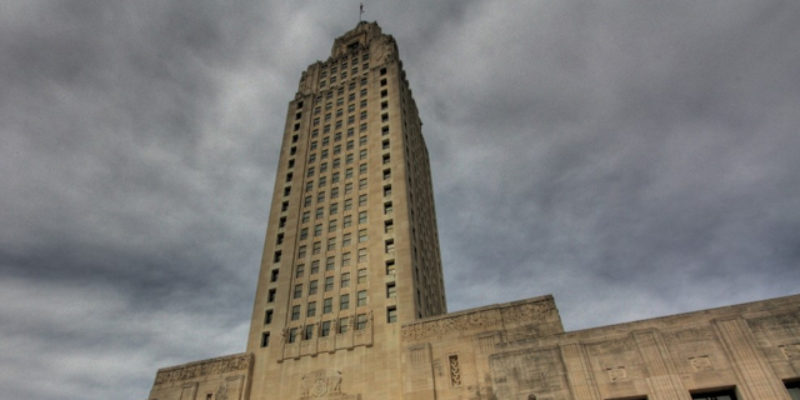Editor’s Note: A guest post from Rep. Mike Johnson (R-Bossier City).
In the current debate about the selection of the next Speaker of the Louisiana House of Representatives, all sides would benefit from some additional historical context.
As we have noted, the fundamental reason why the Louisiana Constitution [LSA-Const. Art. 3, § 7(C)] specifies that the House has independent authority to elect a Speaker from among its members is to protect the essential doctrine of the separation of powers. We do well to defend that principle.
However, as I’ve been making this case, I’ve heard this same objection a few times: “But… allowing the governor his/her choice is just how we’ve always done it here.” Is it, actually? I think the facts show that presumed “tradition” is a weak and relatively recent one.
As far as I can tell, like so many of our other regrettable customs, this extra-constitutional construct may have had its origin in the Huey Long era.
On April 6, 1929, the House famously voted to impeach Governor Huey Long on a range of salacious charges from bribery to malfeasance. The process was brutal and actually involved bloody fistfights on the House floor. By the time the issue moved over to the Senate, Long had strong-armed more than the one-third in that chamber that he needed to halt the impeachment proceedings. With the battle ended, Long was allowed to finish that gubernatorial term before he ran for the U.S. Senate.
Long’s chosen successor, Governor O.K. Allen, decided right away that he would never allow himself to be subjected to a similar battle–so he exerted great pressure to get the Speaker he wanted.
In the years since, while it often appears that the governor is “selecting” the Speaker, that has not always been the case. The reality is that when a candidate for Speaker has had strong support (e.g.,Rep. Bubba Henry in 1972 and Rep. John Alario in 1992), the governor has had to acquiesce in those choices. However, when the field for Speaker has been divided, the governor has swayed enough votes to tip the scales toward one candidate (e.g., Rep. John Hainkel in 1980 and Rep. Hunt Downer in 1996). While some may argue the finer points of these historical accounts, I submit, based upon what I’ve read and heard, that this is an accurate summary. Some will argue that Governor Edwards handpicked Rep. Alario in 1984, and Governor Roemer handpicked Rep. Jimmy Dimos in 1988, but even assuming those arguments are true, these examples cannot be enough to alter the plain language of our constitution.
As the elected representatives of the people, all of us take an oath to defend that constitution, and we are elected to stand for its bedrock principles. While recent customs can be informative, they are not dispositive. We are here today to make history, and not just repeat the past. Republicans were elected to the House precisely because the people want a change, and they are expecting us to defend our conservative principles at this pivotal time for our state. Indeed, it may never have been as important as it is today.
The governor of Louisiana has no sacred right to select the Speaker of the House, and the Louisiana Constitution specifies exactly the opposite. When given the choice between a governor’s preference and the plain language of our constitution, we must choose the latter every single time. As we have said, this debate is not about politics or personalities, it is about principle.
Advertisement
Advertisement

